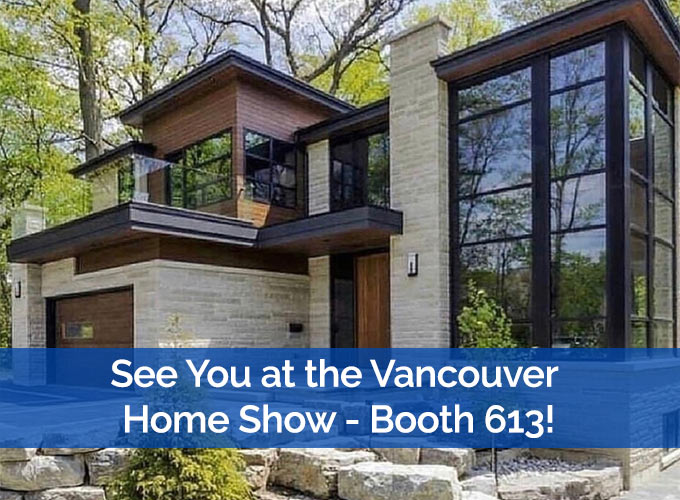As the world increasingly shifts toward sustainable living, designing an energy-efficient custom home is both a responsible choice and a smart investment. An eco-friendly home not only minimizes your environmental impact but also offers significant long-term cost savings on energy bills, making it an attractive and practical option for homeowners in Vancouver. As a leading custom home builder and home renovation company, we are dedicated to creating living spaces that are energy-efficient, comfortable, and stylish, tailored to meet the unique needs of our clients.
At Nicons Enterprises LTD., our team is passionate about creating custom homes that successfully blend sustainability with modern design, offering a living experience that reflects our clients' values and lifestyles. Whether you are an environmentally conscious homeowner or simply looking to reduce your home's energy consumption and costs, creating an energy-efficient custom home is the way forward on your path to sustainable living.
Read on to discover inspiring ideas, tips, and insights that will guide you in designing an eco-friendly custom home in Vancouver, and remember that our experienced team at Nicons Enterprises LTD. is here to walk you through every step of the process, ensuring that your vision of a sustainable home becomes a reality.
Optimizing Your Home's Layout
A thoughtfully planned home layout not only enhances functionality but also reduces energy consumption:
1. Passive Solar Design: Align your home to maximize exposure to sunlight, heating the interior naturally during winter months and reducing the need for artificial heating.
2. Open Concept Layout: Create an open living space to promote air circulation and natural light distribution, resulting in a more comfortable and energy-efficient home.
3. Smart Window Placement: Place windows strategically to allow for cross ventilation and ample daylight, lowering the reliance on heating, cooling, and artificial lighting systems.
Incorporating Advanced Insulation Techniques
Efficient insulation plays a crucial role in minimizing heat loss and optimizing energy usage:
1. High-Performance Insulation Materials: Opt for advanced insulation materials, such as spray foam or high-density mineral wool, to minimize heat loss and create an airtight home.
2. Insulated Windows and Doors: Choose triple-glazed windows and insulated doors to further reduce heat loss and maintain comfortable interior temperatures.
3. Weatherstripping and Air Sealing: Seal gaps, cracks, and openings around windows, doors, and construction joints to prevent drafts, ensuring a more efficient and comfortable living space.
Choosing Energy-Efficient Appliances and Systems
Energy-efficient appliances and systems contribute significantly to lowering your home's energy consumption and costs:
1. ENERGY STAR® Appliances: Select appliances that meet ENERGY STAR® standards, ensuring lower energy and water consumption without compromising functionality.
2. High-Efficiency Heating and Cooling Systems: Install energy-efficient heating and cooling systems, such as heat pumps or geothermal systems, that provide optimal temperature control with reduced energy usage.
3. Smart Thermostats and Lighting: Equip your home with programmable thermostats and energy-efficient LED lighting, allowing you to manage temperature and light settings efficiently.
Utilizing Renewable Energy Sources
Embrace renewable energy options to further reduce your home's carbon footprint:
1. Solar Panels: Install solar panels on your roof to harness the sun's energy for electricity and water heating needs, offering a sustainable and cost-effective alternative to traditional energy sources.
2. Solar Water Heaters: Solar water heaters utilize the sun's energy to heat water directly, supplying your home with hot water without relying on gas or electricity.
3. Wind Power: For homes in areas with high wind potential, consider installing a small residential wind turbine to generate clean energy and lower your reliance on fossil fuels.
Green Building Certifications
Achieve recognition and credibility for your sustainable home through green building certifications:
1. LEED Certification: Aim for Leadership in Energy and Environmental Design (LEED) certification, which evaluates homes based on criteria such as energy efficiency, water conservation, indoor air quality, and sustainable building materials.
2. Passive House Standards: Design your home to meet Passive House standards, focusing on rigorous energy efficiency requirements that significantly reduce heating and cooling demands.
3. Net-Zero Energy Homes: Strive to achieve net-zero energy consumption by producing as much energy as your home consumes annually through renewable sources like solar panels and efficient design.
Health and Well-being Considerations
Prioritize indoor air quality and occupant comfort in your sustainable home:
1. Low-VOC Materials: Select low-VOC (Volatile Organic Compound) paints, finishes, and building materials to improve indoor air quality and ensure a healthier living environment.
2. Natural Ventilation Systems: Incorporate natural ventilation strategies such as operable windows, skylights, and venting clerestories to enhance air circulation and reduce reliance on mechanical ventilation.
3. Biophilic Design Elements: Integrate biophilic design principles by incorporating natural elements such as indoor plants, natural wood finishes, and daylight to connect occupants with nature and enhance well-being.
Maintenance and Long-Term Sustainability
Ensure the longevity and efficiency of your eco-friendly home with proper maintenance practices:
1. Regular Inspections: Schedule routine inspections of insulation, windows, doors, and HVAC systems to identify and address any issues promptly, maintaining optimal energy performance.
2. Educational Resources: Provide homeowners with resources and guidance on sustainable living practices, including energy-saving tips, eco-friendly product choices, and waste reduction strategies.
3. Community Engagement: Engage with local sustainability initiatives and networks to stay informed about new technologies, policies, and opportunities for enhancing the environmental performance of your home.
Conclusion
Designing an energy-efficient custom home in Vancouver involves intelligent planning, the use of advanced materials, and the selection of sustainable appliances and systems. By optimizing your home's layout, incorporating advanced insulation techniques, choosing energy-efficient appliances and heating and cooling systems, and utilizing renewable energy sources, you can create a truly eco-friendly and cost-effective living space.
Nicons Enterprises LTD. is the premier general contractor in Langley, dedicated to helping you achieve your green living goals. With a strong focus on sustainability and design excellence, trust us to bring your vision of an eco-friendly custom home to life. Contact us today to discover how Langley's leading general contractor can make your dream home a reality.





.jpg)
.jpg)
